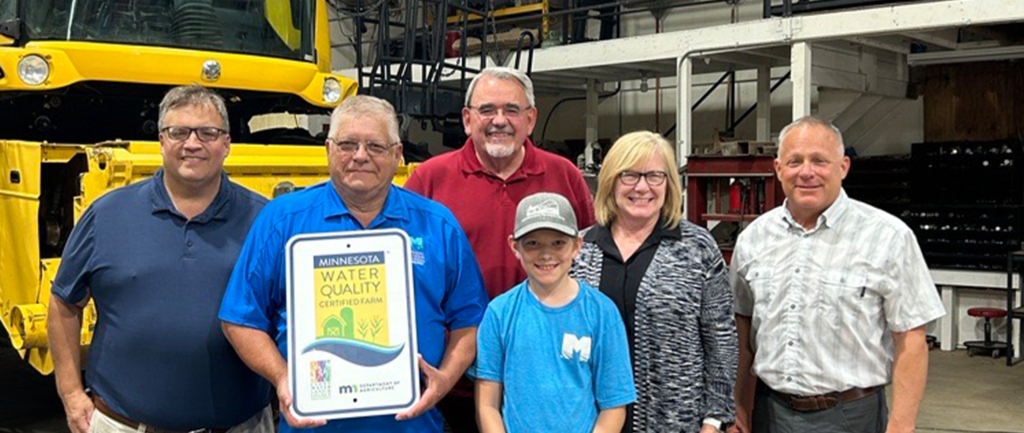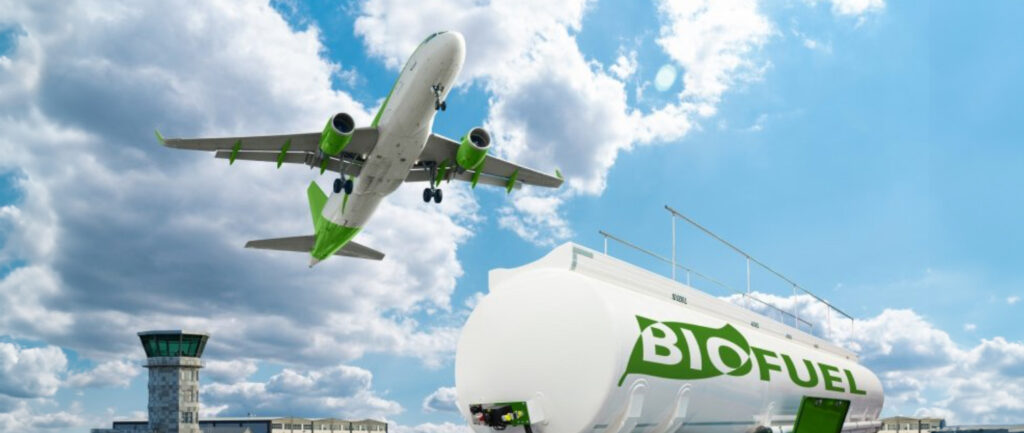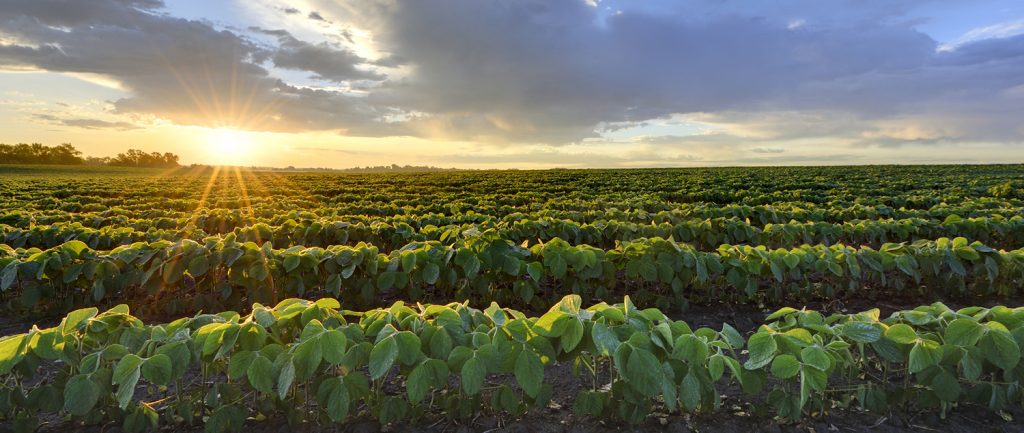Gov. Tim Walz celebrated the Minnesota farmers and landowners who have enrolled 1 million acres in a voluntary agricultural water quality program, achieving a goal Governor Walz set in December 2020. The governor made the announcement at the farm of Eric Heins of Altura. Heins represents one of the 1,400 farmers who’ve become certified since the program began in 2014.
“This program ensures our lakes, rivers, and drinking water are protected for future generations,” said Governor Walz. “Farmers understand the need for this better than anyone – their bottom line depends on conservation and a stable climate. Our farmers are stewards of our natural resources, and they’re stepping up in a big way to implement sustainable practices that will protect the water, land, and community around them.”
The Minnesota Soybean Growers Association (MSGA), which has supported the program since the beginning, was represented at the event by Executive Director Joe Smentek. Directors from both MSGA and MSR&PC are enrolled in the Minnesota Agricultural Water Quality Certification Program. The program is the cover story in the November-December issue of Soybean Business.
“The biggest benefit is making sure the soil is better than when I took the farm over,” said MSGA President Bob Worth, who became certified earlier in 2023. “This program is going to benefit the entire state of Minnesota.”
The MAWQCP is a voluntary program for farmers and landowners that protects the state’s water resources. To date, Minnesota Agricultural Water Quality certified farms have added over 2,700 new conservation practices that protect Minnesota’s waters. Those new practices have kept nearly 48,000 tons of sediment out of Minnesota rivers while saving 141,000 tons of soil and 59,000 pounds of phosphorous on farms each year. The conservation practices have also reduced nitrogen loss up to 49% and cut greenhouse gas emissions by more than 50,000 tons per year.
“We’re excited to hit this million-acre milestone and recognize all the farmers and landowners that have stepped up to become part of the Ag Water Quality Certification Program,” said Agriculture Commissioner Thom Petersen. “This is a unique program that allows farmers to highlight their conservation work, get access to funding assistance, and ensure they are compliant with the latest regulations. I encourage farmers and landowners to look into the advantages of certifying their land.”
The MAWQCP puts farmers in touch with local conservation district experts to identify and mitigate any risks their farm poses to water quality. Producers going through the certification process have priority access to financial assistance. After being certified, each farm is deemed in compliance with new water quality laws and regulations for 10 years.
“I can’t think of an area in Minnesota where water quality could be more important than right here on the bluffs above the Mississippi River,” said Eric Heins, who farms in Altura. “When farming in an area where any excess water runs directly to a stream or river, we have to be sure that the water is as clean as possible if it leaves our farm. The Minnesota Ag Water Quality Certification Program helps us do that.”
There are also extra endorsements available to water quality certified producers for climate smart practices, integrated pest management, irrigation, soil health, and wildlife. These endorsements celebrate farmers and landowners who are going above and beyond to implement conservation efforts on their land.
Farmers and landowners interested in becoming water quality certified can contact their local Soil and Water Conservation District or visit MyLandMyLegacy.com.
“I’ve been recommending it to other farmers because so many have been doing the same practices that we’ve been doing,” said MSGA Director Mike Skaug, a Beltrami farmer who enrolled in MAWQCP on 2018 . “It would be easy for them to do it.”





